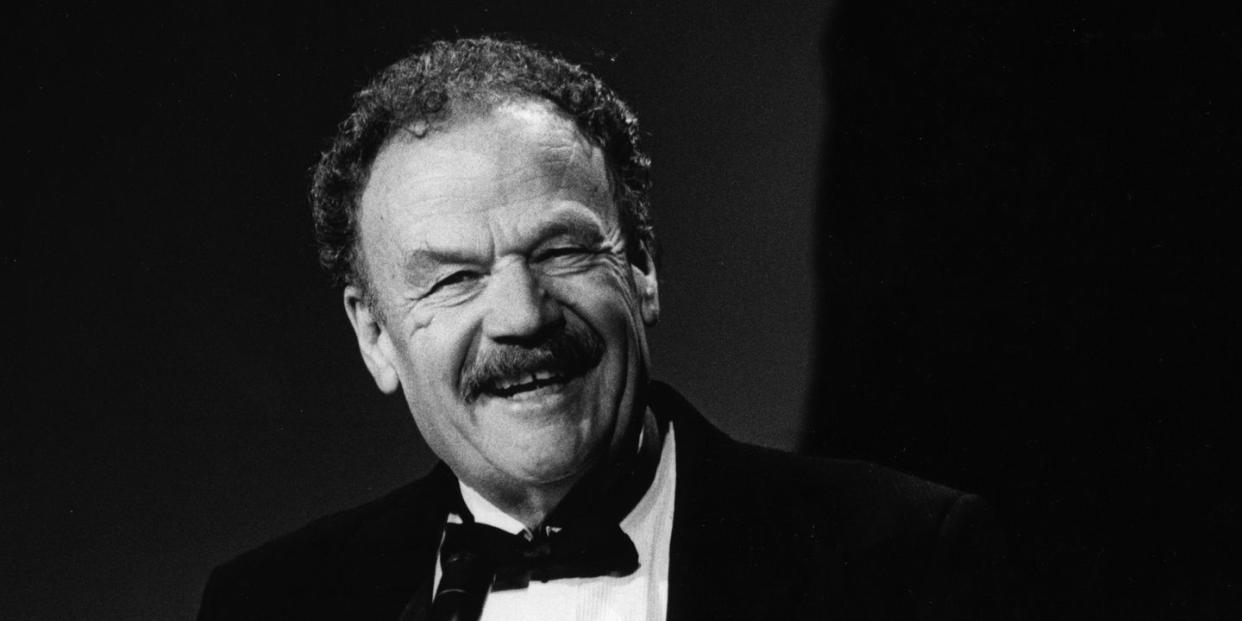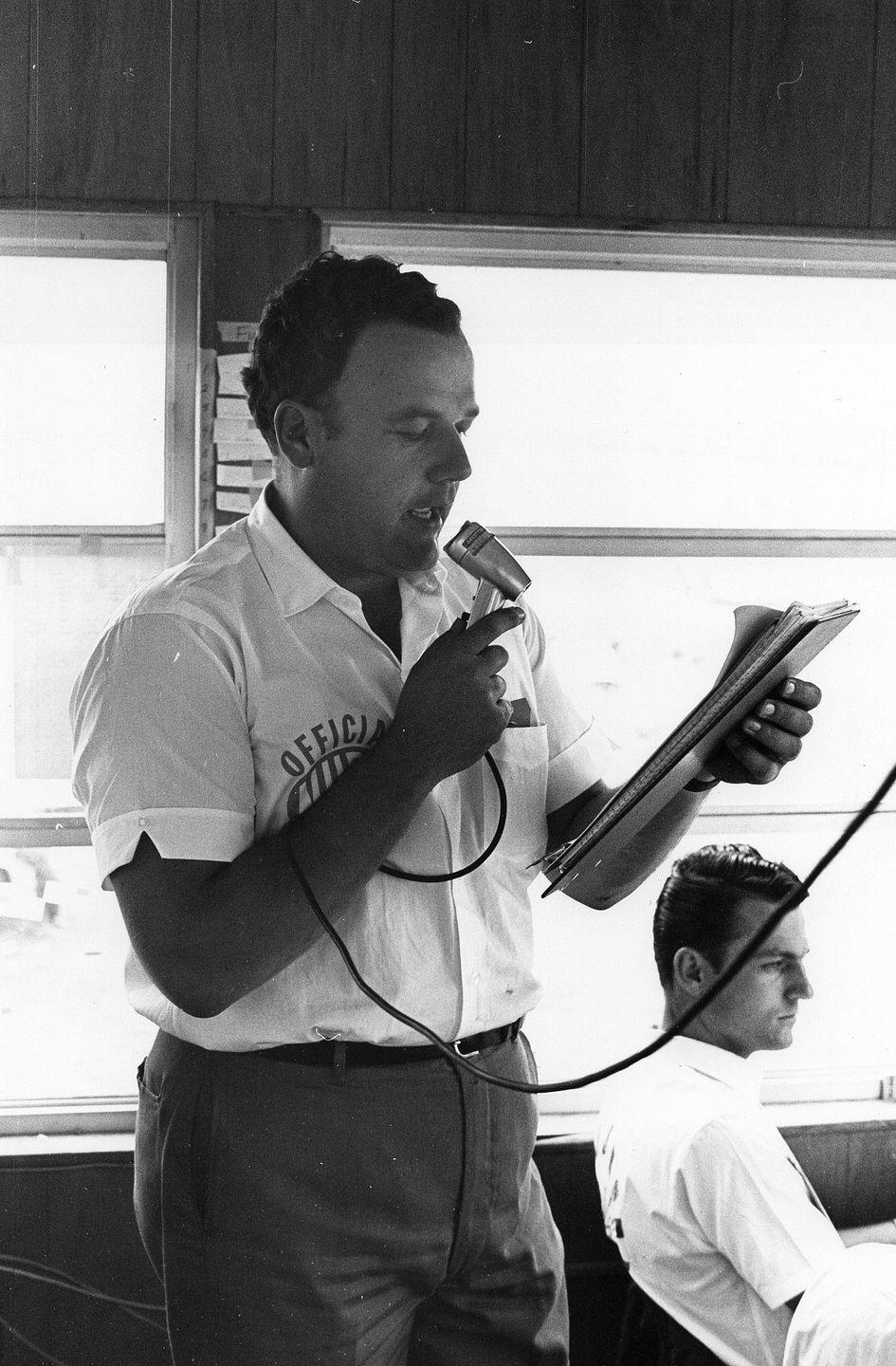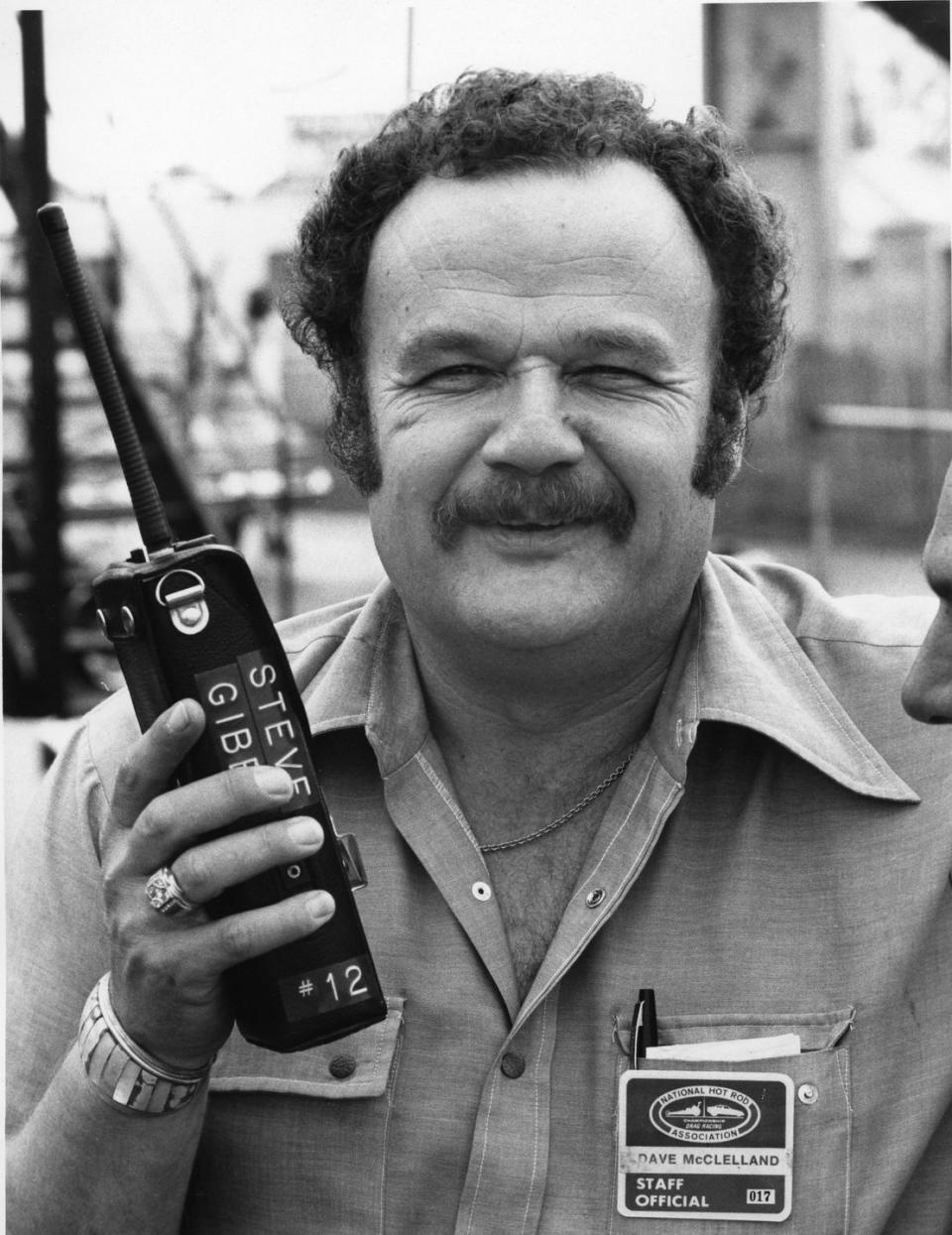Former NHRA Announcer Dave McClelland Dies at 85

McClelland took an unlikely route to his place in drag-racing history.
Among his many honors was induction into Motorsports Hall of Fame of America in 2016.
NHRA became his home for more than half of its 71-year history.
Former SEMA president and CEO Chris Kersting said, “Every once in a while, we get to be a part of the magic that happens when exactly the right person is performing in a particular role.”
He was referring to Dave McClelland, the legendary velvet-voiced NHRA broadcaster for three decades, who died Sunday of natural causes at age 85.
Kersting was right. It wasn’t just McClelland’s honey-smooth voice and classic delivery that made the often-honored announcer so much a part of the NHRA’s 70-plus-year drag-racing story. It was his commitment to his craft, his genuine love for the sport’s people as much as for its quick and fast race cars, and his approachability and enthusiasm.
To borrow a line from the late Indianapolis Star motorsports writer George Moore (who said it about USAC plane-crash victim Frankie Del Roy), McClelland was a one-off: “They built only one. And [Sunday] they closed up the shop.”

Bill Moore, writing in January 2009 for Speed Style Magazine, said, “Dave McClelland has stood out from the herd all these years in a world of blinding speed and spectacular automobiles, hot rods, cruisers, and dragsters. He’s a classy kind of guy you’d want to call friend . . . and over the years he has been friend to a vast range of men and women, including the real movers and shakers in the culture of cars and the sport of speed. And, in rubbing shoulders with great men and women, he not only helped elevate them, but he has elevated himself through hard work that generally meant holding down two jobs throughout his working life.”
For that, he has been honored on what he would have called “a humbling” number of occasions. Perhaps at the pinnacle is his 2016 induction to the Motorsports Hall of Fame of America. He received the Car Craft Magazine Ollie Award and was named to the Car Craft All-Star Drag Racing Team for lifelong contributions to drag racing. SEMA enshrined him in its Hall of Fame, fitting because he had emceed the organization’s awards banquet from 1976 to 2015.
The Don Garlits Museum’s International Drag Racing Hall of Fame presented McClelland with the Founders Award. And in a surprise move in 2009, during a dinner ceremony he was emceeing, the American Auto Racing Writers and Broadcasters Association named him the recipient of the Pioneer Award for longtime dedication and achievement that has made a difference in motorsports. The Pioneer is one of AARWBA's oldest and most prestigious awards, and this was the first time it was presented to someone in the media.
He said he and his wife, Louise, were caught completely off-guard when the “started off talking about an airport dragstrip in Carlisle, Arkansas. I knew I was dead meat!” He called it “quite an honor . . . greatly and humbly appreciated.”
That’s how he truly accepted every accolade, from “the best announcer ever” to “unmatched” to “none better than the silver-throated McClelland” and the “one voice that will be forever associated with drag racing.” Every acknowledgement of his contribution to the grassroots-launched grand spectacle was cherished.

McClelland’s rise to broadcasting acclaim started out on a far different path. He told Moore, “I really was interested in music and drama when I was in high school in Liberty, Missouri — so much so that I took some private singing lessons before going off to college where my intent was to become a football coach. I was going to minor in music. I played ball in high school and in college, but it didn’t take me long to figure out that coaching really wasn’t what I had hoped.
“The school, Central Missouri State College in Warrensburg, offered an experimental course in radio and TV production in the first quarter of my second year. Being active in drama and enjoying singing, I thought this should be a piece of cake! Well, they had no equipment — just a wire recorder where you could record your voice, a wooden tripod with a cardboard box on top to simulate a camera, and a workbook. That was it! Even so, I quickly figured out that someone would actually pay me money to sit and talk — and I went home on break and told my folks I wanted to change majors and schools . . . and that’s what led me to Iowa State in Ames for their radio TV production education course.”
That was in 1956. He took a job as a studio cameraman at a TV station in Little Rock, then went into radio at Shreveport, La., and left in 1969 to run Southland Dragway in Houma, La. But he had attended his first drag race in 1955, at Kansas City, as high-school senior. That’s where he said he “was blown away by what I saw. I had been attending oval-track events for several years, but this was something totally unique. You could get close to the cars, the drivers, the action. What a far cry from being in the grandstand at a midget dirt track—not that oval racing is bad, but drag racing is something I could see myself doing. Nothing spectacular, just the everyday Joe driving his everyday car. But it hooked me.”
Since 1959, when he made his race-announcing debut, he would make calling the races a second job, after his 9-to-5 day at the radio station. He would get on the mike at the racetracks “just about anywhere that I was asked. “ McClelland said that “most were no-pay jobs, maybe expenses. It was mostly an opportunity to be involved. Little did I realize at the time that I was laying the groundwork for what eventually became a career.”
He formed a car club (the Ark-La-Tex Timing Association), managed a racetrack, still kept his radio and TV jobs (including everything from weatherman to program director), and finally with the NHRA in the promotion and public-relations department. By 1973, he was the on-camera, play-by-play host of the NHRA Drag Racing series on television. Because the shows—for nearly two decades—were post produced, I was able to still perform my role as one of the track announcers. My run for the TV shows lasted some 27 years, and the race announcing about 45,” McClelland said.
His career included positions as advertising salesman for Popular Hot Rodding Magazine, which led to his conception of and hosting for “Super Chevy Sunday.” He did commercial work and spots for several Los Angeles radio stations before becoming self-employed in 1985.
McClelland met NHRA founder Wally Parks in 1961 and got the chance to announce the U.S. Nationals at Indianapolis for the first time—and to start a nearly 50-year friendship that lasted until Park’s passing in 2007. He called that introduction to Parks “one of the major life-changing moments for me and my family. We have now resided in the same house in Glendale (Calif.) since ’71, raised three kids, and have given thanks every day for Wally and the opportunities he gave all of us. It was a relationship, throughout the entire time, that I will cherish forever.”
He raced along the way, starting with his old Fiat Altered, just having fun. He was involved with events from the sublime, as the Concours D’Elegance, to the gritty, even receiving an award for his coverage of President John Kennedy assassination figure Jack Ruby. So Dave McClelland’s attention to professionalism led him in all sorts of paths. But he’s most remembered for his ability to infuse the moment at the dragstrip with an excitement and explanation that satisfied both the entrenched fan and the track newcomer.
McClelland always insisted that it’s hard to rank drivers through the years to determine who was greatest or greater than whom. The same could be said of announcers. But what’s certain is that no one ever will do it with the style, the personality, and the joy that Dave McClelland did.

